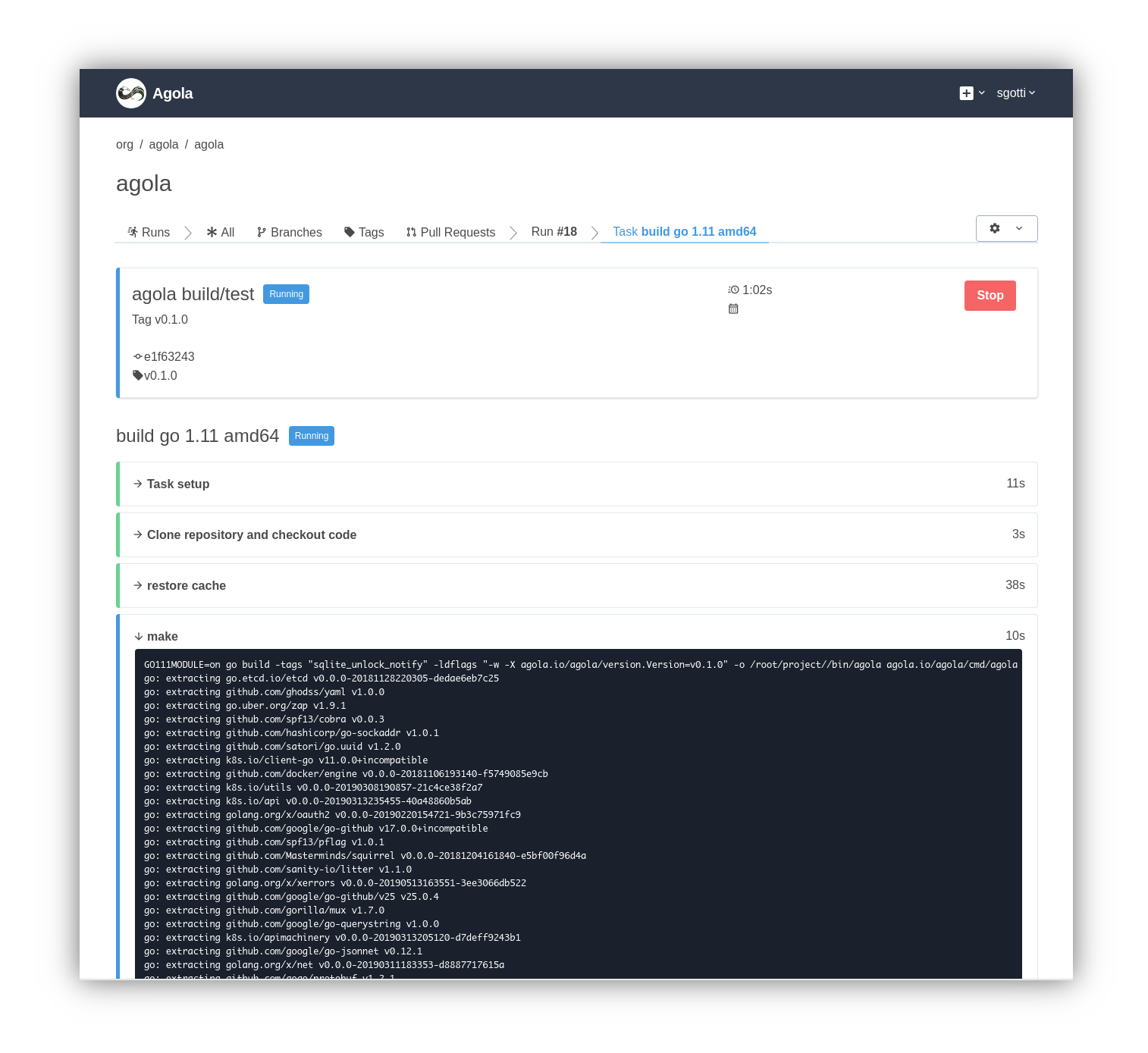Agola: CI/CD Redefined
Export clients and related packages. The main rule is to not import internal packages from exported packages. The gateway client and related types are totally decoupled from the gateway service (not shared types between the client and the server). Instead the configstore and the runservice client currently share many types that are now exported (decoupling them will require that a lot of types must be duplicated and the need of functions to convert between them, this will be done in future when the APIs will be declared as stable). |
||
|---|---|---|
| .agola | ||
| cmd | ||
| doc | ||
| examples | ||
| internal | ||
| scripts | ||
| services | ||
| tests | ||
| util | ||
| webbundle | ||
| .dockerignore | ||
| .gitignore | ||
| Dockerfile | ||
| go.mod | ||
| go.sum | ||
| LICENSE | ||
| Makefile | ||
| README.md | ||
Agola
CI/CD redefined
For an introduction to agola you can take a look at this post
Try it
Features
- Easy to install and manage.
- Scalable and High Available: go from a single instance (single process) deployment to a distributed deployment.
- Deploy anywhere: Kubernetes, IaaS, bare metal and execute the "tasks" anywhere (currently containers executors like docker or orchestrators and Kubernetes, but easily extensible to future technologies or VMs instead of containers).
- Support any language, deployment system etc... (just use the right image)
- Integrate with multiple git providers at the same time: you could add repos from github, gitlab, gitea (and more to come) inside the same agola installation.
- Use it to manage the full development lifecycle: from build to deploy.
- Tasks Workflows (that we called Runs) with ability to achieve fan-in, fan-out, matrixes etc..., everything containerized to achieve maximum reproducibility.
- Git based workflow: the run definition is committed inside the git repository (so everything is tracked and reproducible). A run execution is started by a git action (push, pull-request).
- Design it with the ability to achieve at most once runs: during a deployment to production we don't want multiple concurrent execution of the deploy...
- Restartable and reproducible Runs (restart a run from scratch or from failed tasks using the same source commit, variables etc...)
- User Direct Runs: give every user the power to test their software using the same run definition used when pushing to git/opening a pull request inside the Agola installation with just one command like if they were running tests locally (without requiring a super powerful workstation).
- Testable "Runs" (what is a CI/CD environment if you cannot test your changes to the Runs definitions?): use the same run definition but use a powerful secrets and variables system to access different resources (environments, docker registries etc...).
- Don't try to extend YAML to be a templating language but use a real templating language (as of now jsonnet) to easily generate the run configuration without side effects.
- An advanced permissions system (work in progress).
- Dependency Caching to speed up tasks
Documentation
Local development
Contributing to Agola
Agola is an open source project under the Apache 2.0 license, and contributions are gladly welcomed! To submit your changes please open a pull request.
Contacts
- For bugs and feature requests file an issue
- For general discussion about using and developing Agola, join the agola forum

